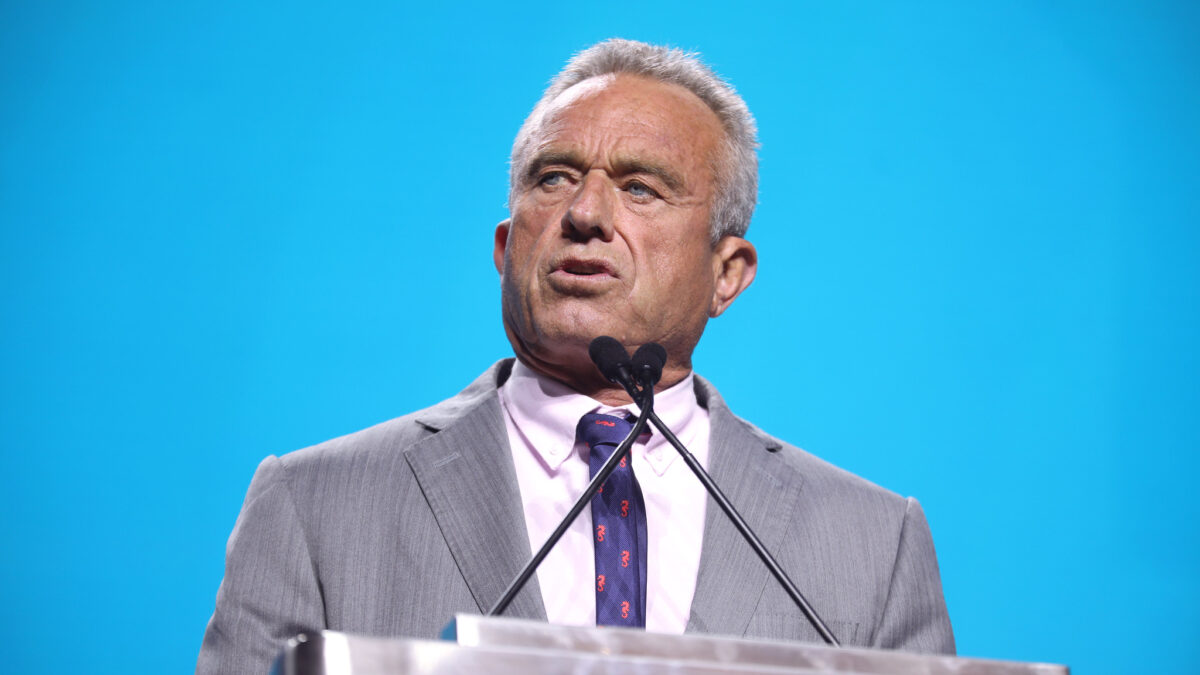Voting For Trump Is The Clear Moral Choice For Pro-Lifers
The article discusses the implications of recent comments by Donald Trump and J.D. Vance regarding abortion, which have upset pro-life voters. It argues that abstaining from voting or voting for a third party in response to their statements would be politically detrimental and morally misguided. Such actions inaccurately imply that a Trump administration would harm the pro-life cause as much as a Kamala Harris administration would. Instead, the article emphasizes the need for pro-lifers to engage in a prolonged effort to win public support for their position, recognizing that unpopular stances cannot simply be legislated into law without first gaining cultural and intellectual acceptance.
The author highlights how the left successfully advanced issues like gay marriage by framing them in terms of civil rights, a strategy pro-lifers have failed to replicate. The article notes that recent elections show a backlash against visible anti-abortion measures, even in conservative states, reinforcing the need for pro-lifers to approach the issue with more sensitivity to public sentiment.
It suggests that pro-lifers must confront the “lesser of two evils” dilemma when voting, particularly within the current two-party system. Accepting the pragmatic nature of voting, pro-lifers should recognize that, despite shortcomings, voting for candidates like Trump may be necessary to prevent more detrimental policies from a Democratic administration. The piece concludes by asserting that voters should not view abortion as an isolated issue, given the broader implications of political platforms on societal values concerning personal freedom and self-determination.
Donald Trump and J.D. Vance’s recent abortion comments have stung pro-life voters, long considered a major pillar of Trump’s base. Right on cue, pro-life activists and pundits quickly denounced Trump and signaled their refusal to vote for him.
Responses like these are understandable. Abortion is a grave moral evil, not just according to biblical teaching but also by the standards of natural law. Trump, and especially Vance, a Catholic convert, should know better. It’s one thing for their campaign to table the abortion fight for another day, recognizing the sad reality that it’s political kryptonite. It’s another thing entirely to embrace the language and goals of abortion advocates.
But at the same time, the idea of “punishing” Trump and Vance for their stances either by abstaining or by voting third party is not only morally incorrect but politically suicidal. Not only does it wrongly suggest that a Trump administration would be anywhere near as disastrous for the pro-life cause as a Harris one, but it attributes to the pro-life voting bloc a leverage it simply doesn’t have.
Unpopular positions — like a national abortion ban — are not made popular by major parties steamrolling them into legislation. In a representative government, this tactic simply alienates voters. Such positions must be successfully advanced in intellectual and cultural spheres before they can have political viability. It is hardly the fault of Trump or Vance, as disappointing as their recent statements have been, that we have failed to achieve this prerequisite for political viability.
This is a lesson the left understands acutely and by which it has profited in its march through the institutions. Recall that the left paved the way for the legalization of gay marriage using Hollywood, academia, and the media to gradually link gay marriage to civil rights; Obergefell generated far less public backlash than Dobbs has. To use the euphemism that’s become a corny favorite of political consultants, they “won hearts and minds.”
Of course, pro-lifers would argue they shouldn’t have to gradually persuade and that it’s acceptable to steamroll in the case of abortion, given what some see as a violation of the 14th Amendment. They may be correct, but unfortunately, being right doesn’t always translate into political accomplishments. The battle for hearts and minds must continue — and so far, pro-lifers are losing it.
But it’s worse than that. Not only are pro-lifers losing culturally and politically; they’re turning their cause into a radioactive substance that poisons what it touches. Unfortunately, for postlapsarian, spiritual reasons largely connected to the “primal screams” and woundedness of the sexual revolution, strong federal legal protection for the unborn is unpopular. The idea of banning abortion activates a knee-jerk negative reaction, particularly among female voters, that has often proved fatal for the party that champions it.
Just look at the results of the 2022 elections, considered by many to be a referendum on repealing Roe. In the wake of Dobbs, even red states rejected most anti-abortion ballot initiatives. By trying to force an end to abortion without convincing voters first, we increase the fervor of those who support it.
How, then, should pro-lifers proceed?
First, they must persist in the humble yeoman’s labor of winning hearts and minds. Meanwhile, when it comes to presidential administrations, they must confront the dreaded, unglamorous “lesser of two evils” question, if they’re to hope for eventual victory and not a series of principled losses. This means admitting that one option repealed Roe and installed pro-life Supreme Court justices, and the other set up abortion buses at its national convention.
Choosing the lesser of two evils might seem less stirring than protest votes and “bucking the system.” But, contrary to what many Catholics and evangelicals abandoning Trump are saying, in the context of our two-party system, it actually is licit — perhaps even obligatory — by Christian standards. A video circulating on X from popular commentator Father Chad Ripperger articulates this point.
When faced with a situation where one candidate “actually holds stuff that’s really evil” and the other “holds stuff that’s also evil but it’s not as bad,” Ripperger explains, “Your obligation is to vote for the lesser of two evils.” He continues: “When you’re voting for a lesser evil, you’re not voting for the person’s evil or for the evil that the [legislation] is doing. What you’re voting to do is to preserve the good that would be lost if the other opponent got in who’s more evil or if the legislation got passed and which was actually even worse.” He notes that this position “has been reiterated throughout the history of the church.”
He’s correct. It’s important to remember that a vote is not a statement of political ideal, nor is it an award for good character. Instead, at least in our national elections, it is merely an expression of pragmatic preference among predetermined options. Insofar as a vote for Trump “means” anything, it is that his administration would be more desirable, or less undesirable, than a Harris administration, where one of the two is, for all intents and purposes, inevitable.
Furthermore, there is no way to guarantee that the Republican Party will take the intended message from protest votes or boycotts: that is, that a stronger opposition to abortion will help win coveted independent votes in general elections, which in most cases it probably won’t. Instead, everyone will just be stuck with the reality of the winning candidate’s administration. And it’s hard to believe any pro-lifer would really rather have in the White House a party that promotes, incentivizes, and even rewards abortion, while harrowingly prosecuting those who counsel against it.
And let’s not forget that, however much Republicans back down from the pro-life cause in the name of pragmatism, their platform as a whole does not favor Democrats’ worldview, which, in its obsession with sexual “liberation,” self-creation, and entitlement, makes support for abortion the logical conclusion. Voters should not view abortion as an isolated issue, as grave as it is.
Pro-lifers in euthanasic Europe understand this keenly, and to them, the unwillingness to be realistic comes across, to borrow a term from the left, as privilege. Journalist Rod Dreher wrote about this on X recently, sharing a conversation he had with a woman he described as a “Hungarian pro-life activist” who has been fighting for the unborn in a “pro-abortion county, a pro-abortion culture, and a pro-abortion continent.”
“She could not grasp the political foolishness of fellow pro-life activists on the other side of the ocean who would behave as if there were no meaningful difference between a flawed Donald Trump and Kamala Harris,” wrote Dreher.
As Michael Brendan Dougherty recently put it: “When the history of these years is written, the headline will be that Roe was reversed, not that the Republican Party’s platform was backsliding.” He’s right, and it’s an accomplishment worth celebrating. Let’s give Trump the chance to show that his actions speak louder than his words — the only prudent move in light of his track record on abortion and the chilling alternative.
Nora Kenney is the director of media relations at the Manhattan Institute. She writes about religion, literature, education, social media, and the Midwest. Her work has appeared in City Journal, the Washington Free Beacon, National Review, the American Conservative, Church Life Journal, and the Washington Examiner, among other publications. She has a BA and MA in English Literature from the University of Notre Dame. Sam Wigutow is an editor at Magnificat, and has a BA and MA in Philosophy from the University of Chicago and Catholic U.
" Conservative News Daily does not always share or support the views and opinions expressed here; they are just those of the writer."





Now loading...